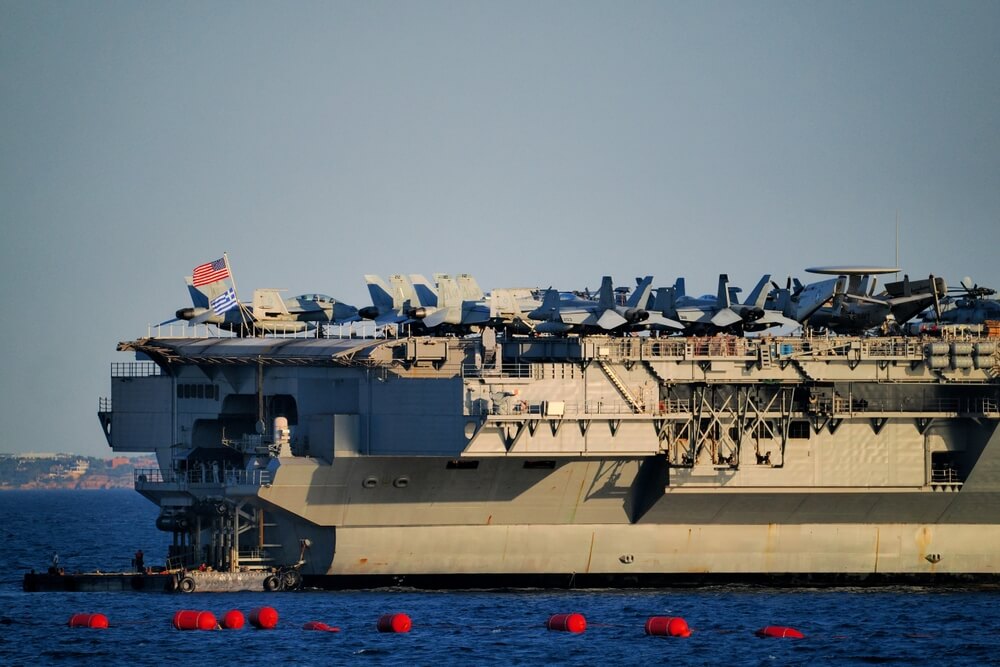Iranian Supreme Leader Ali Khamenei has not left his subjects with the clearest instructions on how they should behave towards the new American administration's policy on Iran's nuclear programme.
His address to air force officers this week was cautious and vague, despite his intention to keep his countrymen calm about developing nuclear capabilities.
The Iranian leader took extreme care in selecting his words when reacting to US President Donald Trump opening up the possibility of dialogue with Iran on nuclear issues.
“The very person who is in office today tore up the agreement. He said he would, and he did. This is an experience we must learn from,” said Ali Khamenei.
On the recent possibility from the White House that there is a place for dialogue with Iran, Khamenei said that negotiations with the current administration “are not intelligent, wise or honourable.”
The USA confuses Tehran
Despite his supra-political position, which allows him to speak in convoluted terms and without many concrete policy directives, this time, Khamenei has left Iran's political elites with plenty of room for dilemmas.
The confusion stems primarily from the fact that even the Trump administration has not presented a clear strategy towards Iran, including its nuclear programme as the main point of contention.
Tehran is not alone in its inability to clearly recognise the Trump administration's policy towards Iran
On 4 February, President Trump signed an executive order in which he ordered "maximum pressure" on Iran. At the same time, however, he dampened the expectations associated with this decision including that a resumption of dialogue on the Iranian nuclear programme was possible.
“I’m going to sign it, but hopefully we’re not going to have to use it very much. We will see whether or not we can arrange or work out a deal with Iran,” said Trump.
Tehran is not alone in its inability to clearly recognise the Trump administration's policy towards Iran, given the inconsistencies in the mandate of the newly appointed White House envoy to the Middle East, Steve Witkoff.
The role of envoy Witkoff
Trump's golf buddy played an important role in the Gaza ceasefire agreement even before he took office. While his powers are clear and far-reaching in this area, they may not extend to Iran.
According to reports at the time of Witkoff's appointment at the end of January, Trump's long-time friend will be authorised to work diplomatically with Iran, particularly on the issue of the nuclear programme.
The president will not allow a bomb to be gotten by the Iranians - Steve Witkoff
Witkoff himself was convinced before taking office that he would have these powers. "The president will not allow a bomb to be gotten by the Iranians. Not going to happen. We're not going to that place... hopefully, we can solve it diplomatically," he told Fox News earlier.
However, Trump dampened such expectations and said "no" at the end of January when asked whether he would entrust envoy Witkoff with the Iranian portfolio. “But he’s certainly somebody I would use. He’s done a fantastic job. He’s a great negotiator.”
The hesitation to deliver bombs to Israel to destroy the bunkers where the Iranian nuclear facilities are located also contributes to the doubts about the new American approach to Iran.
A weakened Iran under new circumstances
What is certain with regard to Iran, however, is that the Trump administration is primarily looking for a diplomatic way to curb Iran's nuclear programme.
This is a line that has probably also been recognised in Tehran and is therefore another reason why the messages from the very top, i.e., Ali Khamenei, are unusually cautious and vague.
 Trump's strong support for Israel in suppressing security threats, including Iran, gives Tehran no room for expectations of more lenient treatment from the new administration - USS Gerald R. Ford
Trump's strong support for Israel in suppressing security threats, including Iran, gives Tehran no room for expectations of more lenient treatment from the new administration - USS Gerald R. Ford
The establishment in Tehran and Donald Trump's administration have known each other since Trump's first term. This interaction was characterised by the US withdrawal from the 2018 nuclear deal, and since then there has been no progress in controlling Iran's capabilities, which threaten to increase year by year as a result.
But the previous experience is not particularly useful today, as the circumstances and context in which tensions between the US and Iran persist have changed quite a bit.
First of all, Iran's influence on events in the Middle East has been drastically reduced by Israeli operations against Tehran's proxies in Gaza, Lebanon, Syria, and Yemen, certainly with the support of US-led allies.
In such an environment, Trump's strong support for Israel in suppressing security threats, including Iran, gives Tehran no room for expectations of more lenient treatment from the new administration.
Also, the economic isolation of Iran by the US and its allies has worked all the previous years, further hindering Tehran's potential to realise its aggressive plans.
Therefore, the Iranian leaders are in a position where they have to wait for the concrete moves of the new American administration and not take the first step themselves, especially not a radical one.